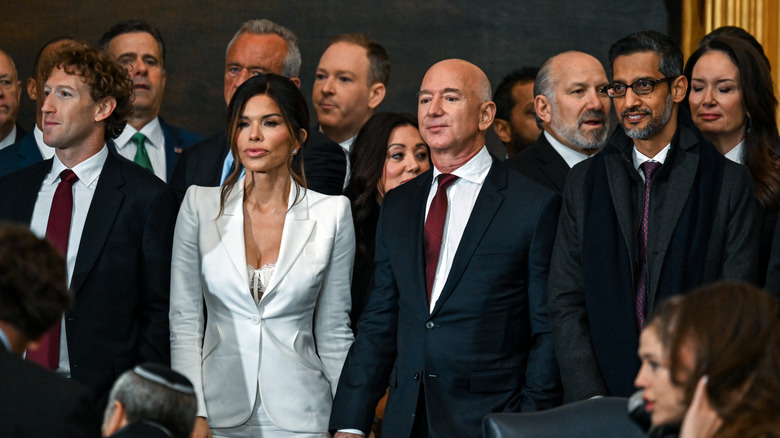The Wealthiest People In America Live In These 4 States
According to the 2025 Forbes 400 list and a Newsweek analysis, California, New York, Florida, and Texas host nearly two-thirds of the nation's billionaires, and about 500 of the richest Americans. California is home to Silicon Valley's tech titans like Meta's Mark Zuckerberg and Google's Sundar Pichai. Meanwhile, the state's innovation hubs and venture capital networks continue to mint new fortunes, despite high taxes and living costs.
New York is dominated by finance and media moguls. Property owners in the city include some Wall Street heavyweights, like hedge fund manager Ken Griffin and former mayor, Michael Bloomberg. Florida and Texas are both considered to be attractive to relocating elites, as a result of the zero state income taxes and other business-friendly regulations. Figures like Elon Musk who settled in Texas and Ken Griffin who moved his hedge fund, Citadel, to Miami Florida, are good examples in this regard.
The other 46 states share a smaller billionaire headcount than any single member of the "Big Four," and several have none at all. It's a reminder that extreme wealth tends to camp where tech IPOs, hedge‑fund bonuses, or low‑tax promises live. That uneven spread sparks bigger questions: if fortunes keep clustering on the coasts and in sunny tax havens, what happens to upward mobility in the rest of the country? While we ponder on that, check out the generation that is raking in the most wealth.
Distribution count in each state
California alone claims more than eighty spots on the Forbes 400, their fortunes — roughly $3.3 trillion in all — is built on code, stock options, and the wildfire pace of Silicon Valley. New York and Florida each shelter about fifty‑four billionaires, yet the cash flows from different streams. New York's riches rise out of hedge‑fund turf and skyscraper newsrooms, while Florida has executives and investors who packed their bags, fled high‑tax states, and landed in a place where income taxes don't exist, as those with extreme wealth are often drawn to ways they can legally avoid paying taxes.
Texas has 43 billionaires, many of whom were drawn by its no income tax policy and business-friendly regulations. This tells so much about the motives of others that migrate to this area. Silicon Valley alone has about 56 billionaires residing in the area, while Miami's billionaire count has doubled since 2020, as the state currently boasts of 15. Even traditionally wealthy states like Massachusetts or Illinois trail far behind, with about 22 to 23 billionaires residing in each state. Since wealth attracts wealth, it's no surprise that billionaires cluster where capital flows freely, deals get made, and taxes on those in the 1% stay low.
How this affects the rest of America
When so much money stays in just four states, the shockwaves travel far. California, New York, Florida, and Texas don't just house billionaires — they amplify their voices. Billionaires living in California, New York, Florida, and Texas wield a huge influence through political donations. They fund campaigns and ballot initiatives, as well as put up venture capital that shapes tech innovations. Philanthropy helps, but it's mostly hometown love; Marc Benioff bankrolls hospitals and housing in San Francisco, while Ken Griffin showers Miami with arts funding and political donations. Great news if you live nearby; not so great if you're in a state the mega‑donors skip. Over time, that local focus widens the gap in schools, clinics, and even basic infrastructure between the billionaire hubs and everywhere else.
For upcoming billionaires, these states can give you access to privileged networks and resources that are unmatched elsewhere. Silicon Valley's startup ecosystem, Miami's crypto scene, and Texas' energy deals are all fertile grounds. However, the value of wealth is also reflected in the high cost of living within these areas. Silicon Valley alone has a median home value of more than $2 million. States like California now debate "wealth taxes," while Florida faces criticism for under-funded public services despite the good number of billionaires that are resident in the state.


